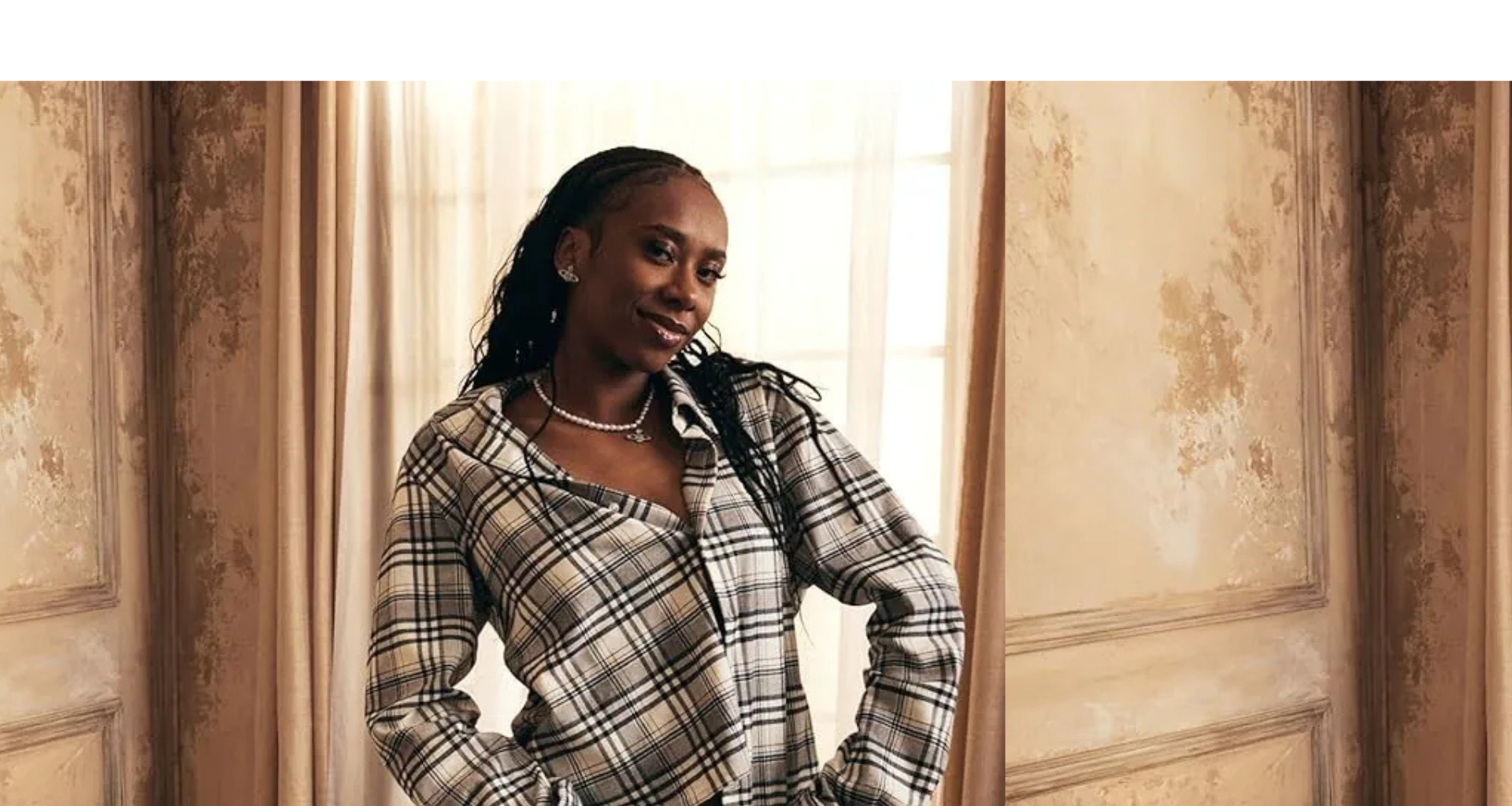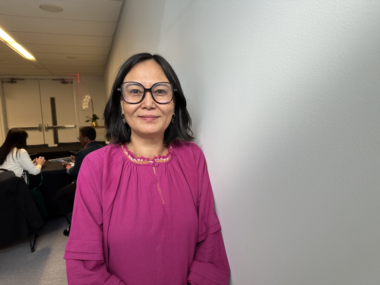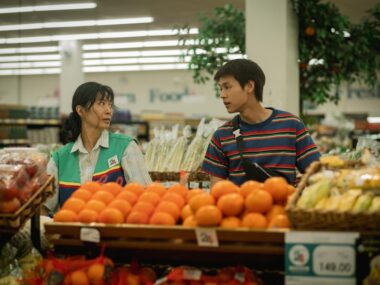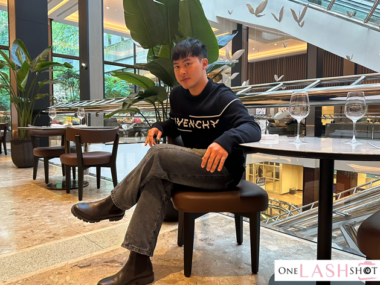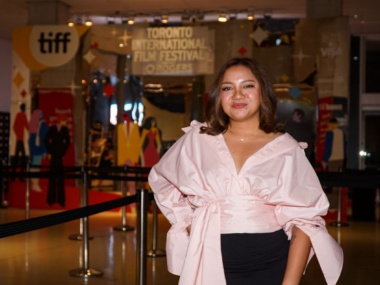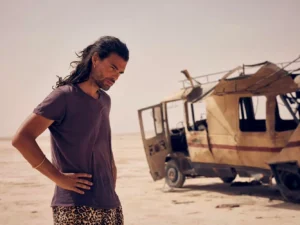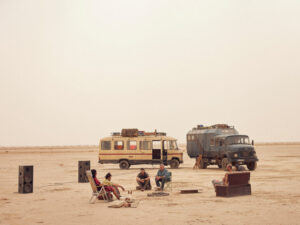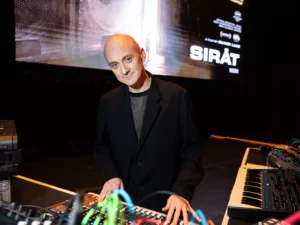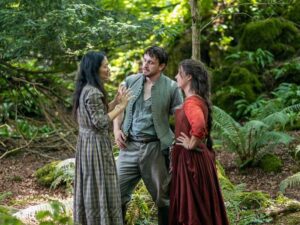Zoe Lewis is a breakout talent, stepping into the acting world while captivating listeners with her R&B voice that oozes soul. With a voice that strikes deep and a stage presence that demands attention, Zoe infuses every performance with a genuine, raw energy that seamlessly translates to the screen. Though she’s just beginning her acting journey, her natural magnetism and emotional depth make her a standout in her major film debut in Boxcutter.
Directed by Reza Dahya, Boxcutter highlights the lives of the hip-hop community in Toronto. When his laptop is stolen, Rome, an up-and-coming rapper, embarks on a relentless journey through the transforming streets of Toronto to recover his music. With everything on the line, he races against time to get his tracks back before a life-changing meeting with a Grammy-winning producer that could make or break his future. Ashton James steps into the role of ‘Rome’, Viphusan Vani brings ‘Sid’ to life, and Zoe takes on the character of ‘Jenaya’.
Jenaya, a 19-year-old activist and artist, is deeply committed to confronting power through her art. As she joins Rome on his journey, she uses the entire city as her canvas to highlight the destructive impact of gentrification. However, her bold vision often clashes with Rome’s more personal quest. Jenaya’s unwavering resolve begins to crack as she faces the pressure of landing her first corporate job, torn between her artistic values and the compromises of the business world. Struggling with the tension between art and commerce, Jenaya fights against apathy and the erasure of her community, determined to do whatever it takes to protect the city she loves.
One Lash Shot sat down with the unstoppable rising actress and singer Zoe Lewis, as she opened up about the challenges of bringing a complex, multi-dimensional character to life in her breakthrough role.
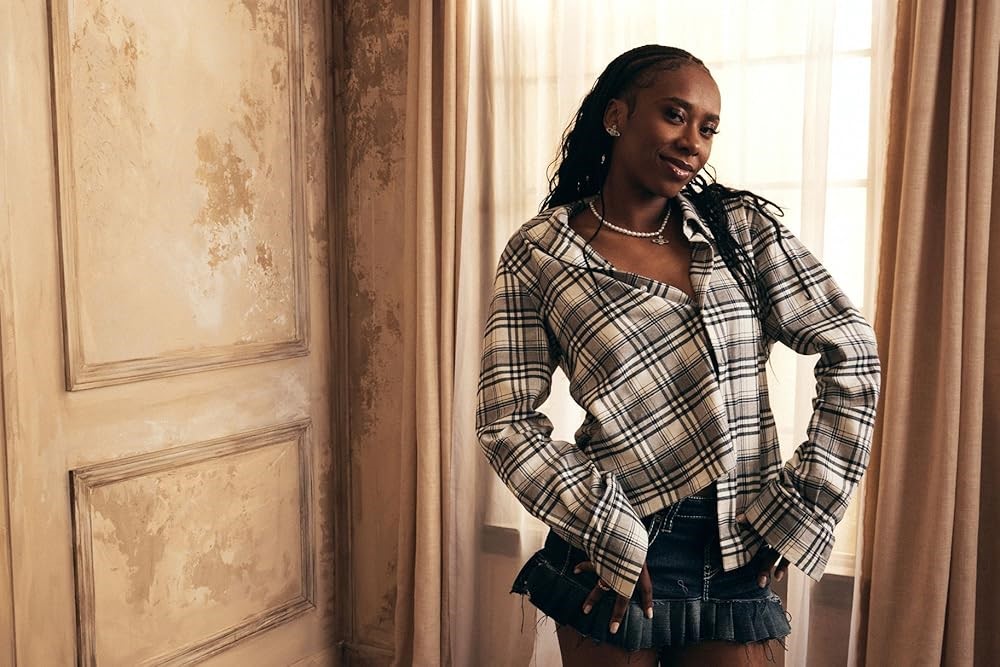
This is not your acting debut. If I am correct, you played Lily in Antigone: Presented by the Girls of St. Catherines?
Yes!
I know you are a singer-songwriter as well. What made you take a break from it and step into acting? Or are you doing both simultaneously ?
I am doing both simultaneously. However, I would say for this role in particular, I was still creatively making music. But I think it was a lot harder for me to be involved in my music because I spent most of my time on set every single day. And I would say I was definitely finding a way to keep up with doing both simultaneously. So, I’m working 12 hours on set and you can ask everybody on the crew and the cast–they have so many pictures of me falling asleep on set because I would quite literally work 12 hours on set and then either go to a studio session or go hang out with my friends, not thinking that I literally have to be up at 7 in the morning or I have a 5 a.m. call time. But it was definitely tiring, however, I was finding a way to do both.
You’re more into R&B/soul kind of music, is that correct?
Yes, yes, I am. Army soul and hip-hop, I’d say. A fusion, kind of, yeah.
Who inspired you to become a singer?
I would say probably one of my biggest inspirations is Lauryn Hill. I love, love, love, love Lauryn Hill. Everything about her— her music, her musicality, the message that she portrays through her music, and her ability to do both simultaneously through singing and rapping, and just being a really great MC is something I relate to. Because within my own music, I sing as well as rap.
When Reza Daya first showed you the script for Boxcutter, what made you agree to play the character of Jenaya, an activist- artist fearlessly equivocating for the truth?
Honestly, I would say what made me agree once I read the script is that I fell in love with it. Like I was quite literally like, “Oh my gosh, this is so amazing”. Especially being someone from Toronto and just the slang that he threw in there— not the corny slang either. Like authentic slang, not the troll stuff that you find on the internet.
Like just how relatable it was for myself as an artist and just the story itself. I found it to be a really beautiful story. And I told him that as I read it, I literally love this. And I want to be a part of this, even if I’m not like Jenaya. I just commended him for the script because it was beautiful
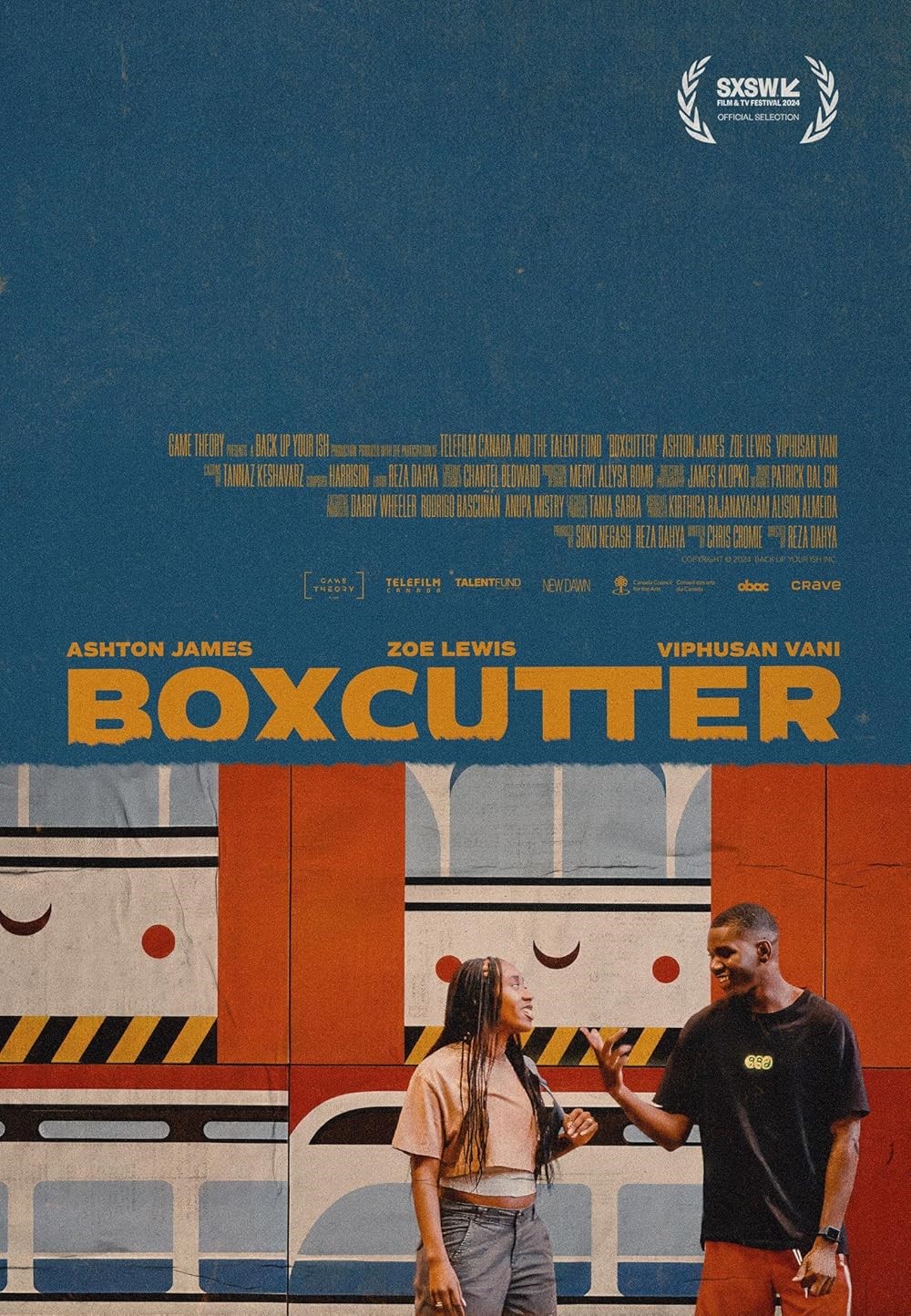
Shout out to writer Chris Cromie as well— the two of them put together an amazing story and I’m really happy that I got to be a part of it and portray Jenaya.
So how did you prepare for this role specifically?
Ooh, I would say as far as preparation goes, one thing I will note is I do keep saying in a lot of these interviews that it is like my first major debut. I have a background in acting. But I would just say it’s my first major lead role, where I’m number two on the call sheet. But for me, I’ve been training when it comes to acting for a while. And I would say preparing for this role was really something of just making it as authentic as possible.
I hope everyone can appreciate the authenticity of the movie and the genuine connection between Rome and Jenaya. For me, showing up and making it something that’s just a real craft doesn’t feel like work. It’s authentic to me and I’m living and portraying it as Jenaya instead of trying to act like that, you know?
What was your experience working with your co-leads Ashton and Viphusan, especially in the city of Toronto, shooting all around, getting on and off the TTC and walking by the streets?
It was honestly so much. It just felt like I was hanging out with friends, honestly. We’re doing this thing. We’re filming a movie. But at the end of the day, it really just felt like one big family hanging out every day and it’s almost like you’re on a family trip and you’re like “Okay guys, let’s go over there!” or “Let’s go do this ride!” We’re all experiencing everything all at once. So, if we’re filming a specific scene we’re all filming the scene for the first time together. We might run lines but like we’re doing this thing together.
It was just a really fun experience for all of us and being with Ashton was fun. It was just a lot of laughs, a lot of giggles. We obviously would take it seriously and lock in when it was time to lock in, but it just felt like I was hanging out with my family and just going around.
It was an experience for sure.
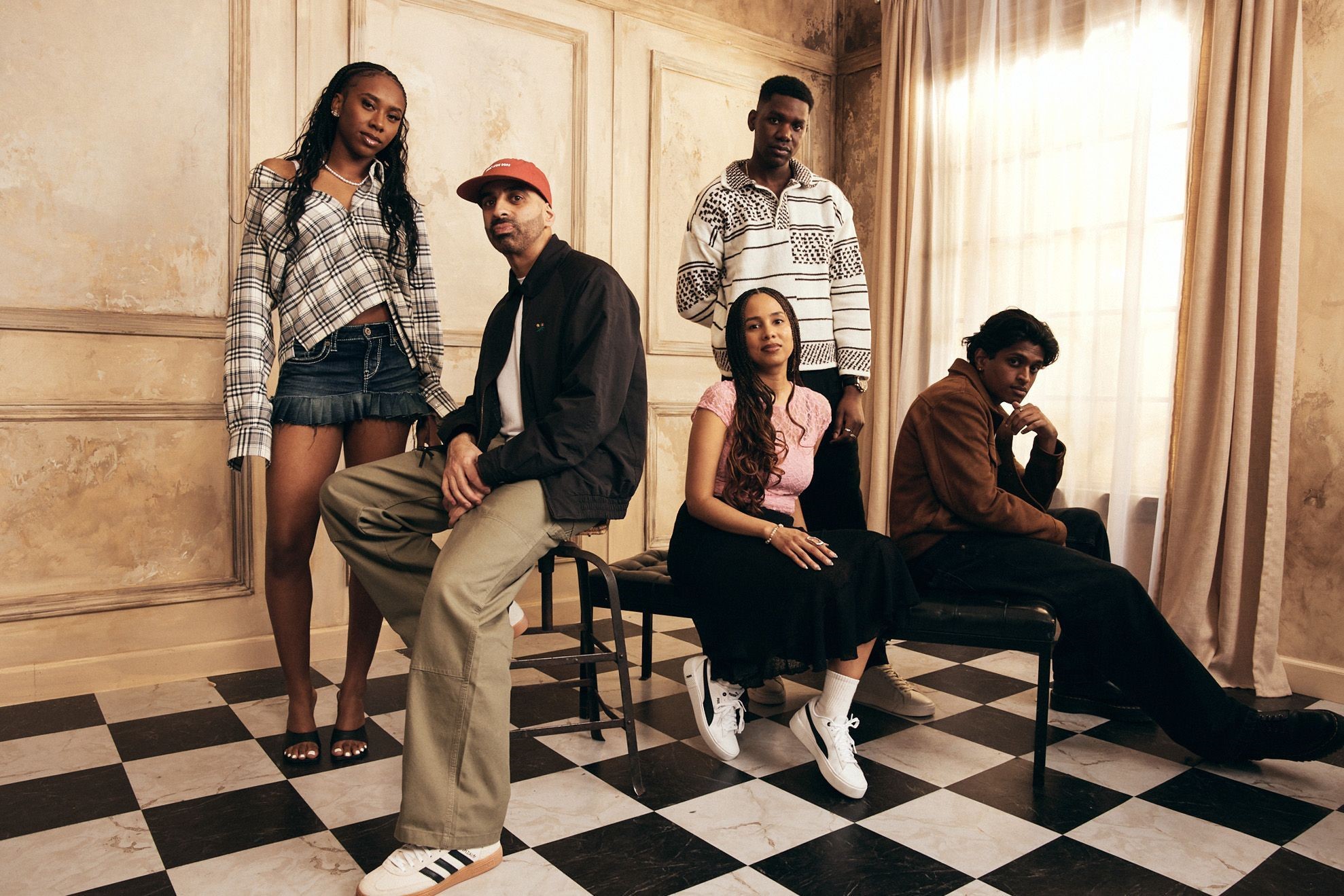
The character Sid says a statement in the movie— “This is how the industry works. You’ve got to pay your dues.” In your opinion, since you are closely involved with the music industry, do you think Rome’s struggles stand true in the city of Toronto?
I want to say yes and no because I feel like what Sid said is definitely true but I’m going to quote something else he says in the movie, which is probably one of my favorite scenes purely because it’s like one of those jaw-dropping moments. Sid says, “100% of nothing is still nothing”. Going back to it, I think when you look at something like the music industry, it’s such a big industry. It’s overwhelming and very competitive.
It can also be an extremely grimy industry so Rome’s outlook is definitely right. I respect his hustle as he’s trying to do his thing— he’s trying to get his stuff out there. But to each his own, honestly. I feel like a lot of people feel that if they get connected with one particular person, that means that they’re going to be put on forever, where a lot of times that’s not the case. It’s like, you need to build up your community. You need to build up your network and make sure that you have not just one person that you’re solely relying on to get you there. That’s where I feel what Sid is saying is true.
I definitely relate, but the way he’s going on about it is not the right way to go about it. Like as an artist, I don’t think you should be paying to perform. You’re providing a service and you’re providing entertainment to people who are coming to see it. I definitely agree with Rome.
I’m going to settle and say that they’re both right. You know, they just have different aspects of saying it, but there are truths to both things that they’re saying. I think that Rome finally comes to the conclusion of what I’m saying later in the movie.
Each person has their own story that is unique to them so it’s kind of hard to say.
What was something that you found challenging while navigating to play the role of Jenaya and how did you overcome that challenge?
Honestly, I think for me, I wouldn’t necessarily say that it’s something that I found challenging. I would just say it was something that I needed a bit of an adjustment in getting used to. I don’t know how many days I was shooting, but every single day consistently, I was on set just having people in my physical space 24/7, where they were constantly touching me or my hair and my makeup. Not to say that I’m not used to that because definitely as an artist, if you’re on set or you’re filming a music video or you’re doing a photo shoot, people are going to be touching up your hair and your makeup or wardrobe. But I think for me, the long hours of it are where I started to get a little bit overstimulated.
But you know what? I cope with that by taking a little cat nap here and there and just being like a little sleeper. They would find me and I would just be passed out. But that was also because I was not sleeping. I was being young. I was going outside after working on set. I would say that was probably something that I found challenging. And then also just kind of allowing myself to be vulnerable.
I’m showing up and I’m giving them my craft and not judging myself and just letting it be what it needs to be without trying to put any parameters onto myself and being like, “Okay, well, maybe don’t react that way in this scene. Cause what if they don’t like it?”
Instead, I chose to act authentically. If they like it, they like it. If they want to do it a different way, then we can try and do it a different way. So, kind of just not being my biggest critic and just taking it slow is important. Learning through the way.
Do you think this relatively mournful portrayal of a city on the edge rings true in the city of Toronto today?
I am going to say that I think that there’s definitely truth to this movie— that’s what makes it so relatable. Being an artist and being from this city and seeing so many different things move in the city, I would say it’s definitely getting a lot better. The community that we have and the way that we support one another when it comes to literally everything, whether that’s music, fashion or film— we’re definitely getting somewhere a lot further than back in the day when it wasn’t like that. But there’s definitely more work to be done, for sure.
I feel like it does ring true.
The yin and yang to that is that there’s still a lot of love in the city and people will show up and support regardless. They’re like, “Oh, that’s trauma.”
Being in a movie like this and being able to show Toronto and just put Toronto on the map for a hip-hop movie that we haven’t seen in a long time. It’s something that’s needed. That’s why I’m like, it’s getting better, you know?
So yeah, slowly but surely, we’re definitely getting there as a unit and as one and just doing better for each other within the city.
Is there a particular Canadian artist who actually inspires you a lot that made you pursue acting or music?
Oh, that’s so funny.
I would say one Canadian artist particularly that I really like in terms of acting. See, I’m going to assume she’s Canadian. Nina Dobrev?
But I would say someone who’s definitely made this journey inspiring for me is Drake. You know, I’m going to give my homage to him because it’s like– he did both. Big ups to him, when it comes to just what he did for the city and what he’s done through his music. Obviously, we know he’s an actor, too. So, I’d probably in terms of someone that’s kind of inspiring to me as a female artist, you know, and then also an actor at the same time. I’d say it’s definitely relatable in a sense. I’m like, that’s so cool. Like he did it, you know? So, it’s like, I’m doing it too.
[Author’s Note: Thank you Zoe for bringing Jenaya to life through your love for R&B/hip-hop. Can’t wait to watch you next in Morningside!]

